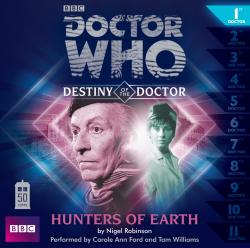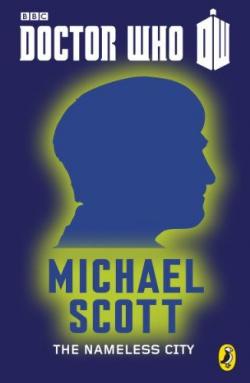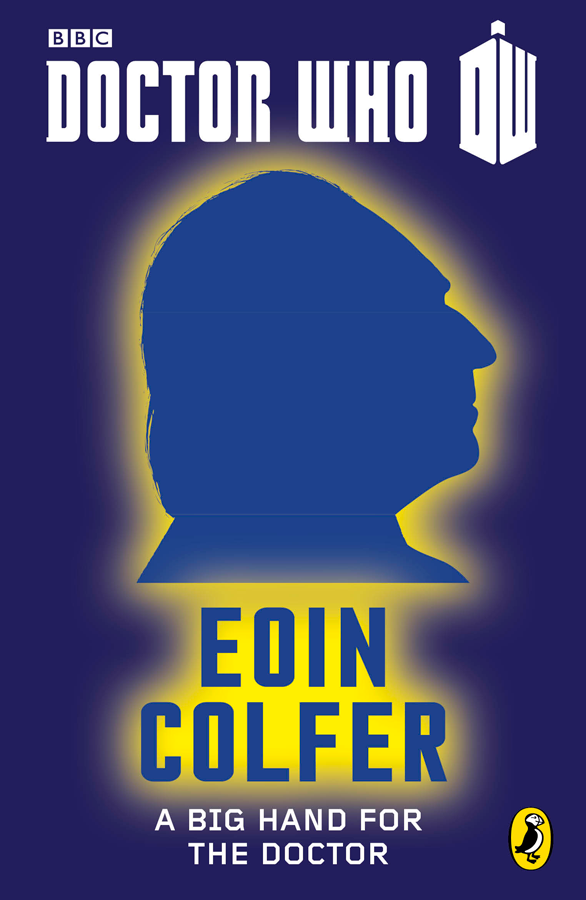Destiny of the Doctor: Hunters of Earth
Thursday, 14 March 2013 - Reviewed by

Destiny of the Doctor: Hunters of Earth
AudioGo
Written by Nigel Robinson
Directed by: John Ainsworth
Released January 2013
"I have a terrible premonition- something’s coming in your future, a destiny that you can’t escape..."
You can’t help but admire the ambition of AudioGo and Big Finish - whereas in any other year these two audiobook publishers would have resigned themselves to their regular self-contained classic Doctor story arcs, for the 50th they’ve devised quite the gambit in order to sate the appetites of fans. Joining forces, the two teams will provide us with Destiny Of The Doctor over the course of 2013, linking eleven monthly tales featuring each incarnation of everyone’s favourite Time Lord with an overarching tale of epic adventure.
Aptly enough for a year that’s as much focused on reliving the glory days of classic Who as it is looking to the future, the first instalment of this multi-Doctor arc takes us back to the very beginning. Hunters Of Earth is a compelling and layered jaunt back to 1960s London, Coal Hill School, abandoned junkyards and all. More than that, though, writer Nigel Robinson has paid delicate attention to evoking an atmosphere that’s wholly reminiscent of that Swinging era of British history. From the Beatles to transistor radios, from teen cultures to ‘alien’ xenophobia references, there’s plenty for the elder fans among us to sink their teeth into throughout.
Of course, creating a meaningful rendition of the decade that saw the show’s inception is all well and good, yet it results to little if there’s an insubstantial narrative at an audiobook’s core. Thankfully, for the most part that’s not the case with Hunters, which boasts a compelling (if simplistic) opening chapter for the Destiny arc. We follow Hartnell’s First Doctor and his granddaughter Susan in the midst of a startling disruption to their safe abode from the residents of Earth. Soon enough, both Time Lords are thrown into a disturbingly human conspiracy, the implications of which stretch further than the Doctor can possibly imagine.
Were this release’s storyline to focus solely on this tale of upheaval and suspicion, then to a degree it would be a rather disappointing standalone romp. What makes the narrative a more successful endeavour on Robinson’s part is undoubtedly its implied connections to a wider plot arc set to develop over the course of the ten future adventures still to come in the Destiny range. Without delving too far into spoiler territory, this reviewer will at least hint that a figure from the Doctor’s future seems to have a role to play down the line, donning a Fez of wisdom to offer subtle guidance to his past self which will presumably help to solve an impending crisis for his later incarnations. On top of that, Susan’s abilities to read the minds of others and gaze into the voids of time could have unearthed an ominous prophecy which her grandfather would do well to heed in days to come...
On the topic of the Doctor’s first on-screen companion, it’s lovely to have Carole Ann Ford on board for Destiny’s premiere outing. Carole’s work here is similar to that of the Companion Chronicles range, blending third-person narration of the situation at hand in 1963 with in-character dialogue from her original character that should have classic fans swooning and reminiscing in an instant. It appears that perhaps it was something of a stretch to ask Carole to mimic both Hartnell’s crotchety tones and broad teenage accents at regular intervals alongside her reprisal of the role of Susan, yet at least with Tam Williams on board there’s sufficient help at hand to ensure that there’s balance in the character portrayals.
There are one or two notable missteps by Robinson, however. Although replicating the inherently human threats of the Hartnell era was undoubtedly a bold and successful move, I couldn’t help but register the rushed science-fiction fuelled explanation of the antagonists’ nature that was shoehorned into the climax of the adventure- there was a sense of simple necessity about the resolution which felt rather jarring in contrast to the human adversaries of the first half. In addition, while the Destiny elements heighten the success of the plot considerably, in that sense it’s difficult not to recall that without these subsidiary arcs starting to develop, the core narrative is lacking in direction or real depth.
Nevertheless, those shortcomings don’t really detract to any major degree. Hunters Of Earth remains a thoroughly engaging initial chapter in the Destiny Of The Doctor range, strongly replicating the feel of the First Doctor era in both its sounds (the special FX and eerie musical cues add considerable atmosphere too) and its narrative. It acts as both a suitable dose of nostalgia for long-term fans and a stunning entryway point for anyone who’s yet to get hooked on either of Who’s expanded universe audio ranges.
Better yet, there’s a real sense of foreboding tension already beginning to build towards future instalments, hinting at a dark battle for Gallifrey’s most infamous resident in his eleventh incarnation. Even with the extensive TV celebratory offerings alone, Doctor Who’s 50th Anniversary was always looking like a perfect prospect for fans, yet with this breathtaking new audio saga, Big Finish and AudioGo have confirmed that with Destiny Of The Doctor as a foundation, there’s going to be plenty more to sate fans’ appetites in what should be the show’s greatest year yet.









